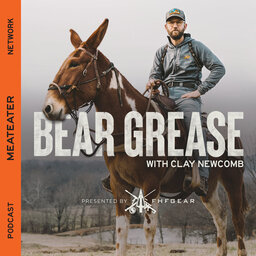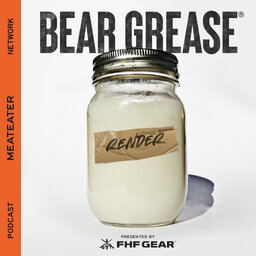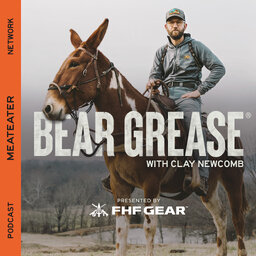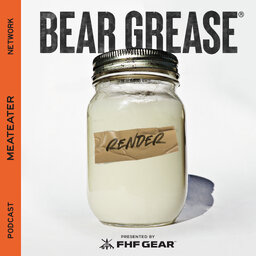Ep. 241: Render - When the Cat's Away. . .
This week on the Bear Grease Render, the BG Headquarters is taken over by Render crew members Josh "Landbridge" Spielmaker, Brent Reaves, Misty Newcomb, Bear Newcomb, and special guest River Newcomb, while host Clay Newcomb is gone in Alaska on a mountain goat hunt. Bear shows off his latest creation in his self-bow journey, Brent gives his opinion on goat's milk, and Misty talks about how River Newcomb got her name. Listen along as the crew discusses the first Buffalo River podcast and its impact on them.
Connect with Clay and MeatEater
Clay on Instagram
MeatEater on Instagram, Facebook, Twitter, Youtube, and Youtube Clips
MeatEater Podcast Network on YouTube
Shop Bear Grease Merch
 Bear Grease
Bear Grease


